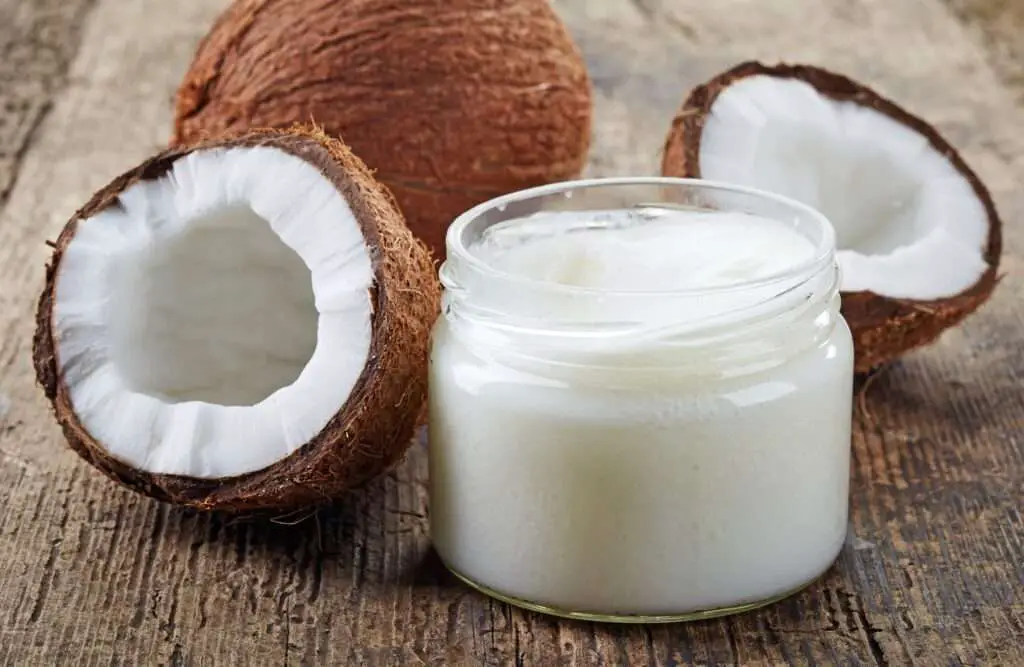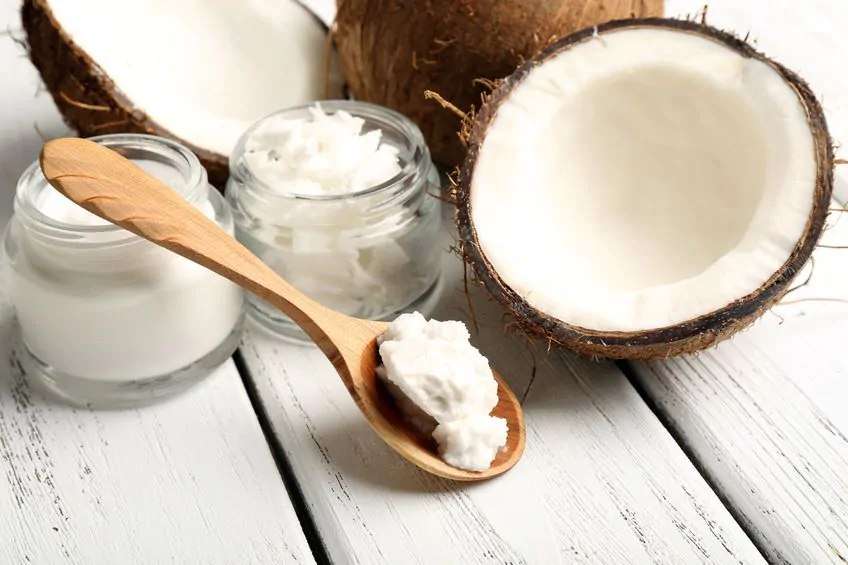How to Eat Coconut Oil for Weight Loss? Best Ways
How to Eat Coconut Oil for Weight Loss? Consume 1-2 tablespoons (15-30 ml) daily. Start with one teaspoon and gradually increase to avoid digestive discomfort.
Coconut oil has risen in popularity as a weight loss aid, touted for its unique fatty acids that can enhance metabolism. Swapping it in for other cooking oils can be a simple way to incorporate it into your diet. It’s also versatile; you can use it in baking, add it to your coffee or smoothies, or even eat it straight off the spoon if you choose.
Unlike long-chain fats, the medium-chain triglycerides (MCTs) in coconut oil are metabolized differently, going straight to the liver where they may be used as a quick energy source or turned into ketones. Remember moderation is key, and it’s essential to balance the consumption of coconut oil with a healthy diet and lifestyle for effective weight loss.
The Popularity Of Coconut Oil In Diets
Coconut oil has surged in popularity as a trendy superfood. Thanks to its unique combination of fatty acids, it boasts an array of health benefits. These include improved brain function and skin health. But perhaps the most interesting to many is its potential impact on weight loss. Below, dive into how coconut oil might help you shed those extra pounds.
Multifaceted Benefits Of Coconut Oil
- Boosts Metabolism: The medium-chain triglycerides (MCTs) in coconut oil can increase energy expenditure.
- Reduces Appetite: MCTs may also help you feel full, which leads to a natural reduction in calorie intake.
- Supports Digestion: Coconut oil’s unique structure is easier to digest compared to other fats.
- Improves Cholesterol: It has been found to raise HDL (good) cholesterol, contributing to heart health.
Weight Loss Claims And Coconut Oil
Weight loss enthusiasts often tout coconut oil as a quick fix. While no single food will magically melt away the pounds, coconut oil can be a weight loss ally.
| Method | Benefits |
|---|---|
| Cooking: | Use as a butter substitute for a healthy fat option. |
| Smoothies: | Add to smoothies for extra richness and energy. |
| Direct Consumption: | A spoonful before meals may help curb appetite. |
Remember, moderation is key. Integrate coconut oil into a balanced diet. Pair with regular exercise for the best results. Always consult a dietitian or healthcare provider before making any significant changes to your diet.

Understanding Fats And Metabolism
The journey to weight loss often involves understanding the role of fats and metabolism. To sustain our bodies and ensure optimal performance, the essential presence of fats is indispensable for energy generation and overall well-being. Yet, the types of fat we consume can affect our health and weight goals. Metabolism is our body’s way of converting what we eat into energy. This process determines how quickly we burn calories. Let’s dive into the types of dietary fats and how coconut oil fits into this picture.
Different Kinds Of Dietary Fats
Dietary fats are not all created equal. Some can support weight loss, while others might hinder it. Generally, there are four main types:
- Saturated fats: Found in meat, butter, and coconut oil, they can increase cholesterol but provide energy.
- Monounsaturated fats: Present in olive oil and avocados, they help with weight maintenance.
- Polyunsaturated fats: Located in fish and nuts, they promote heart health.
- Trans fats: Often in processed foods, they can lead to weight gain and should be avoided.
How The Body Processes Coconut Oil
Coconut oil is unique due to its high content of medium-chain triglycerides (MCTs). Unlike long-chain fats, MCTs go straight to the liver from the digestive tract. There, they turn into ketones or quick energy. This process can help boost metabolism.
Here’s a simplified view of how our body handles coconut oil:
- You consume coconut oil.
- It gets digested easily due to MCTs.
- MCTs move to the liver and are converted.
- The liver makes ketones or uses MCTs for energy.
- This can lead to a boosted metabolism.
Integrating coconut oil into your diet might aid in weight loss by altering the way your body processes energy. Replacing some other cooking fats with coconut oil could offer a metabolism advantage. It’s crucial, though, to use it in moderation, as it is still a form of fat.
Incorporating Coconut Oil Into Your Diet
Coconut oil is becoming a staple for those looking to shed pounds. With its unique blend of fatty acids, incorporating coconut oil into your diet can boost fat loss. Let’s explore how you can incorporate this oil into your daily routine effectively.
Starting With Small Amounts
Introducing coconut oil to your diet should be a gradual process. Start with one teaspoon per day. This lets your body adjust. Gradually increase to two teaspoons when ready. Remember, it’s rich in calories, so moderation is key.
Best Times To Consume Coconut Oil
Timing is crucial for maximum impact. Consuming coconut oil before meals can reduce appetite. This helps you eat less without feeling hungry. In the morning, it can jumpstart your metabolism. Consider adding coconut oil to your coffee or smoothie. Before workouts, it can act as a natural energy booster.
| Meal | Method |
|---|---|
| Breakfast | Add to coffee or smoothie |
| Lunch | Mix into salad dressings |
| Snack | Use in homemade energy bars |
| Dinner | Cook vegetables in coconut oil |
- Blend with beverages
- Cook or bake your favorite dishes
- Replace other oils with coconut oil in recipes
- Start with one teaspoon of coconut oil daily.
- Gradually increase intake as your body adapts.
- Use as a pre-meal appetite reducer for weight control.
Creative Ways To Eat Coconut Oil
Thinking about adding coconut oil to your diet for weight loss? Great idea! Coconut oil can boost metabolism and help you feel full longer. Get ready to discover some tasty and inventive ways to enjoy coconut oil every day.
Cooking And Baking With Coconut Oil
Replace traditional oils with coconut oil when you cook or bake. It not only adds a mild, sweet flavor to your meals but also withstands high temperatures, making it ideal for frying and sautéing. Here are some quick tips:
- Fry eggs or pan-grill chicken in a spoonful of coconut oil.
- Pop popcorn with it for a tropical twist.
- Use it in baking as a dairy-free substitute for butter.
Raw Coconut Oil In Smoothies And Beverages
Smoothies and other beverages are perfect for incorporating raw coconut oil. Its smooth texture blends well and goes almost unnoticed. Try these easy mixes:
- Blend a tablespoon of coconut oil into your morning smoothie for extra energy.
- Mix it into coffee or tea as a creamer alternative.
- Make a homemade energy shot by whisking coconut oil with lemon juice and a pinch of sea salt.
Potential Risks And Considerations
Exploring the role of coconut oil in weight loss requires careful consideration.
Potential risks and health concerns must not be overlooked.
Caloric Content Of Coconut Oil
Coconut oil is high in calories. One tablespoon contains about 120 calories. This is important to remember when you add coconut oil to your diet.
| Portion Size | Calories |
|---|---|
| 1 tsp (4.5g) | 40 |
| 1 tbsp (13.6g) | 120 |
| 100g | 884 |
Tracking daily intake is crucial to avoid weight gain.
Understanding The Debate On Saturated Fats
Coconut oil contains saturated fats. The impact of these fats on health has been widely debated.
- Saturated fats can increase LDL cholesterol levels.
- Experts suggest moderation with saturated fat intake.
- Weight loss benefits of coconut oil must be balanced against potential health risks.
Before modifying your diet, always consult a healthcare provider for personalized advice on your well-being.

Monitoring Results And Adjusting Intake
Starting a weight loss journey with coconut oil can be exciting. Yet, without the right tracking, it’s like driving without a roadmap. It’s crucial to monitor results and adjust coconut oil intake for optimal weight loss. This section explores how to track progress and strike a balance in your diet.
Tracking Weight Loss Progress
Keeping a close eye on weight loss is essential. Use these steps:
- Weigh yourself weekly, same day, same time.
- Use a food diary to note coconut oil amounts and timing.
- Record how your body feels daily. Are you more energetic?
- Take measurements of your waist, hips, and thighs monthly.
Understanding these patterns will help determine if coconut oil is benefiting your weight loss.
Balancing Coconut Oil With Overall Diet
Coconut oil should be one part of a balanced diet. Here is how to integrate it effectively:
- Start with small amounts, such as one teaspoon a day.
- Replace other fats, don’t add to existing intake.
- Pair with a variety of foods that have fiber, protein, and other nutrients.
- Stay within your calorie needs. Quality over quantity.
Adjust your coconut oil intake based on your progress and how your body responds. Keep it balanced and part of a healthful lifestyle.
Supporting Weight Loss With A Holistic Approach
Supporting Weight Loss with a Holistic Approach means combining healthy practices. It includes eating coconut oil and other habits for good results. Do not rely on coconut oil alone. A complete lifestyle change ensures better weight management. This journey involves regular exercise and a balanced diet.
Exercise And Physical Activity
Regular exercise is key for shedding pounds effectively. It boosts metabolism and burns more calories. Strive to engage in a minimum of 150 minutes of moderate exercise each week to maintain a healthy lifestyle. Include:
- Cardiovascular exercises such as jogging or swimming.
- Strength training to build muscle and increase resting metabolism.
- Flexibility exercises like yoga to reduce stress and improve muscle function.
Always combine these activities with coconut oil consumption for better results.
Other Dietary Changes For Weight Loss
Eating habits play a crucial role in losing weight. Here are some tips:
- Add more fruits and veggies to your meals.
- Cut down on sugar and processed foods.
- Drink plenty of water to stay hydrated and full.
- Choose whole grains over refined carbs.
Integrate coconut oil into your diet but remember moderation. It is still high in calories.

Frequently Asked Questions Of How To Eat Coconut Oil For Weight Loss?
Can Coconut Oil Help With Weight Loss?
Yes, coconut oil can aid weight loss. Its medium-chain triglycerides (MCTs) boost metabolism and increase satiety. Use it in moderation.
How Much Coconut Oil Daily For Weight Loss?
For weight loss, consume 1-2 tablespoons of coconut oil daily. Begin by introducing a modest quantity and slowly raise it to prevent any digestive discomfort.
What Are The Best Ways To Use Coconut Oil For Weight Loss?
Incorporate coconut oil by cooking with it, adding to coffee or smoothies, and using it as a salad dressing. Always opt for virgin coconut oil.
Does Coconut Oil Burn Belly Fat?
Coconut oil is thought to help burn belly fat due to MCTs promoting energy expenditure and fat oxidation, but more research is needed for conclusive evidence.
Conclusion
Harnessing the benefits of coconut oil can be a tasty addition to your weight loss journey. Remember to start with small doses and opt for virgin coconut oil for maximum health perks. Consult a nutritionist, and be patient—your wellness goals are within reach.
Ready to embrace a healthier you? Coconut oil could be your friendly, flavorsome ally.









